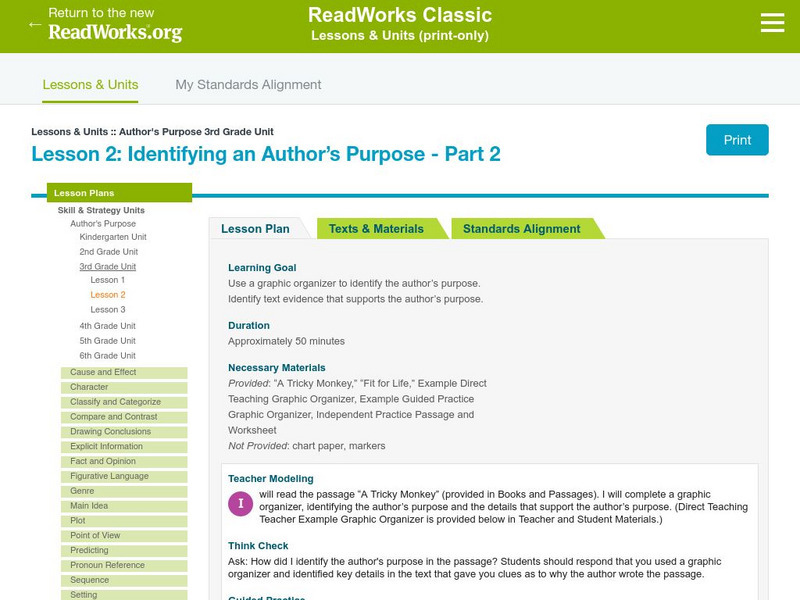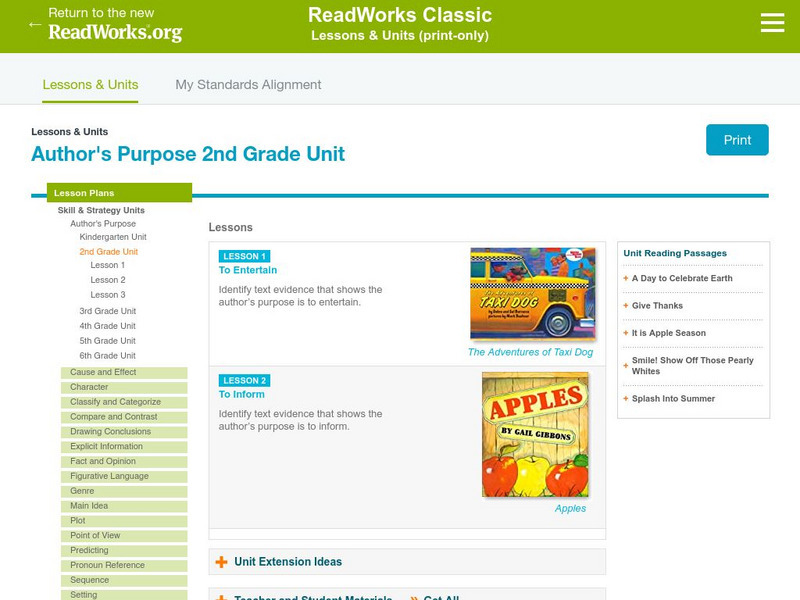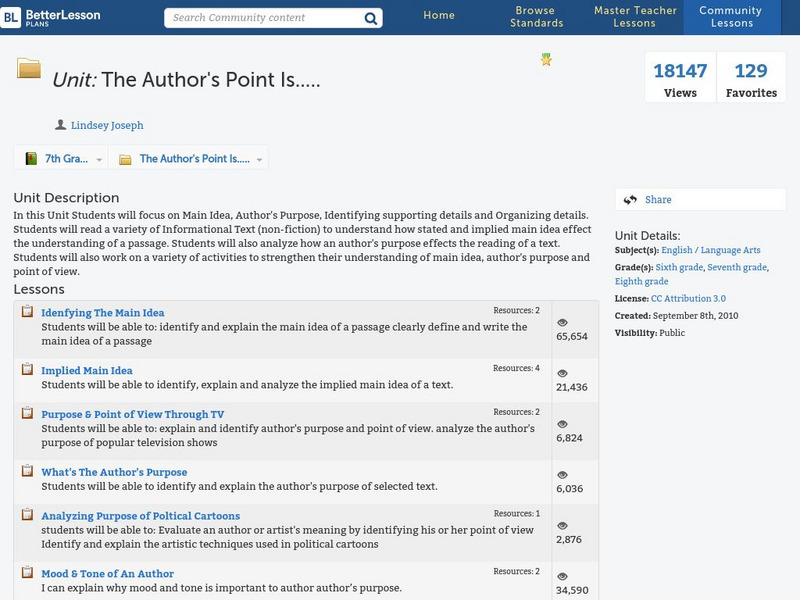Curated OER
Where in My World Am I?
Young scholars determine exactly where they are in the world by using a local map to write accurate directions to local eating establishments. They write precise directions from the school to their home which the teacher simulates...
Curated OER
Finding My Hat
Sixth graders explore the Korean culture through the book, Finding My Hat. They read and discuss the book in literature circles and write in response journals after each chapter. Comparing the main character to themselves, they note the...
Curated OER
Writing with Style: Six Traits of Good Writers
Fourth graders listen as the teacher reads a picture book that emphasized word choice. They discuss words and how word choice impacts a piece of writing. Students view various passages on the overhead, and highlight adjectives and verbs...
Curated OER
The Emperor and the Kite
Fourth graders explore storytelling by reading a classic story. In this vocabulary identification lesson, 4th graders read the story The Emperor and the Kite and define the different vocabulary terms that appear in the story. Students...
Read Works
Read Works: Fourth Grade: Three Lesson Unit: Author's Purpose
[Free Registration/Login Required] A three-lesson unit on author's purpose where students learn to identify author's purpose, categorize texts according to author's purpose, and change author's purpose by rewriting a text. With free...
Read Works
Read Works: 3rd Grade: Author's Purpose: Lesson 2
[Free Registration/Login Required] This lesson plan helps students learn to identify an author's purpose.
Better Lesson
Better Lesson: Finding the Author's Purpose
What is autism? How does it affect behavior? Students will find evidence of the author's tone or purpose for writing the article, as well as hints that show evidence of opinion. Includes a video clip from the movie "Rainman", and an...
Read Works
Read Works: Grade 2: Three Lesson Unit: Author's Purpose
[Free Registration/Login Required] A series of three lesson plans designed to teach learners to identify author's purpose including to entertain, to inform, and to persuade. Lessons are based on the books The Adventures of Taxi Dog by...
Read Works
Read Works: Author's Purpose 3rd Grade Unit
[Free Registration/Login Required] A three-lesson unit on author's purpose. In the first lesson, learners practice identifying the author's purpose as to entertain, to persuade, or to inform. In the second lesson, students use graphic...
Better Lesson
Better Lesson: Unit: The Author's Point Is
Middle schoolers will focus on Main Idea, Author's Purpose, Identifying supporting details and Organizing details. Students will read a variety of Informational Text (non-fiction) to understand how stated and implied main idea effect the...
Better Lesson
Better Lesson: Work Out Together
Students will read an article and determine the author's point and identify the reasons the author gives to support his or her point. This lesson requires analysis by the students and a great deal of higher-order thinking as they...
British Library
British Library: 19th Century Non Fiction Texts: Crime & Punishment
This thematic collection will allow students to read and understand 19th-century non-fiction texts, and support them in identifying key features for a range of genres, audiences, and purposes. Each source is accompanied by original...
British Library
British Library: 19th Century Non Fiction Texts: Work & Welfare
This thematic collection will allow students to read and understand 19th-century non-fiction texts, and support them in identifying key features for a range of genres, audiences, and purposes. Each source is accompanied by original...
British Library
British Library: 19th Century Non Fiction Texts: Gender, Behaviour & Etiquette
This thematic collection will allow students to read and understand 19th-century non-fiction texts, and support them in identifying key features for a range of genres, audiences, and purposes. Each source is accompanied by original...
British Library
British Library: 19th Century Non Fiction Texts: Education
This thematic collection will allow young scholars to read and understand 19th-century non-fiction texts, and support them in identifying key features for a range of genres, audiences, and purposes. Each source is accompanied by original...
Read Works
Readworks: Reading Lesson 3: To Persuade
This instructional activity focuses on identifying text evidence that shows that the author's purpose is to persuade. Draw a conclusion about what the author is trying to persuade the reader to do or think. Text, worksheet, and chart are...












